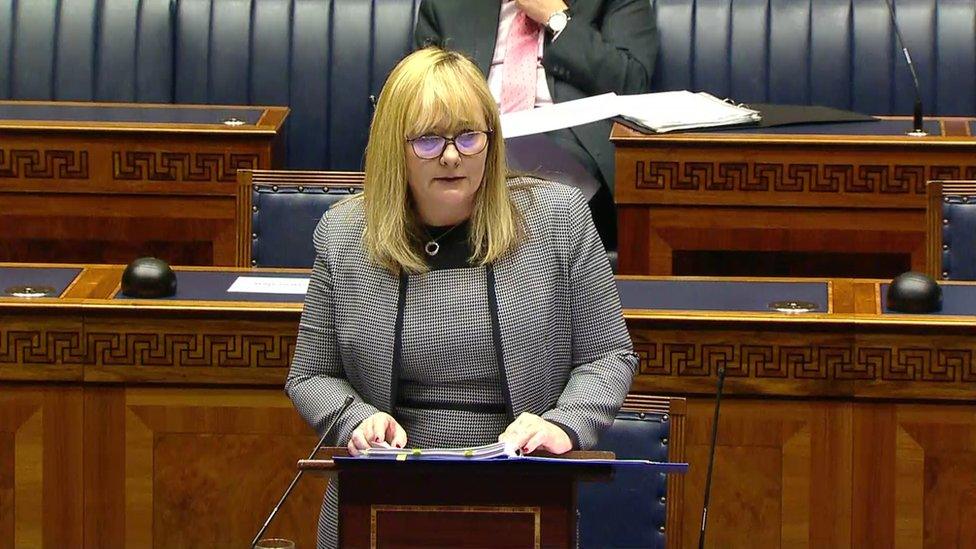General Teaching Council: Teachers must pay fees to 'toxic' body
- Published

Teachers will still have to pay fees to what has been described as a "toxic" body suspended by the education minister.
That is according to a letter from the Department of Education (DE) to schools.
The General Teaching Council (GTCNI) was suspended by the minister Michelle McIlveen in December 2021.
She said there had been a "repeated and sustained failure" to maintain normal governance at the body.
But the DE has told school principals and boards of governors their teachers will still have to pay fees of £44 to GTCNI for 2022/23.
In the letter, DE asked them to ensure that message was "relayed to your teachers".
Without paying a fee to GTCNI teachers cannot work at a school in Northern Ireland.
The minister's decision to suspend GTCNI came after a number of problems at the body, which registers teachers and is responsible for professional standards.

The education minister spoke of a ''toxic atmosphere'' at the council
She accused the body of too much time spent on "personal, and at times, bitter fighting among its membership".
There had previously been allegations of bullying, harassment and undermining of staff and it had been put in "special measures" by the department.
The organisation also faced criticism in August 2021 when it emerged that hundreds of newly-qualified teachers would not be registered to teach before the start of the new school term.
The letter to school heads from DE said the department had received a number of queries about whether registration fees for 2022/23 would be deducted from teachers' salaries given the GTCNI had been suspended by the minister.
"As GTCNI is established under legislation, its dissolution will require the passage of fresh legislation by the NI Assembly," the DE letter said.
The letter said that GTCNI was still a non-departmental public body (NDPB) under DE's "oversight" and would continue to keep a register of teachers entitled to work in schools.
DE said that "the minister's decision to stand down GTCNI's council" did not change the legal requirement for teachers to register with GTCNI and pay an annual fee to it.
"Accordingly, teacher registration fees will continue to be collected in line with established processes," the letter said.
'Rightly angry'
GTCNI's most recent published annual accounts are from 2018-19 and show the body received more than £1.1m in fees from about 26,000 teachers.
But the NASUWT union has said that teachers are "rightly angry" that fees to GTCNI would still be deducted from their salaries.
"Given that the minister has stood down the GTCNI and stated her intention to dissolve the remnants of this dysfunctional body, it is entirely unfair that teachers are still obliged to pay what amounts to a tax to do their jobs," the union's Justin McCamphill said in a letter to DE.
"If the department's legal advice is that the fee must be collected, then the department should either reduce the fee to 1p or reimburse every teacher including substitute teachers for registering with GTCNI."
Related topics
- Published13 December 2021
